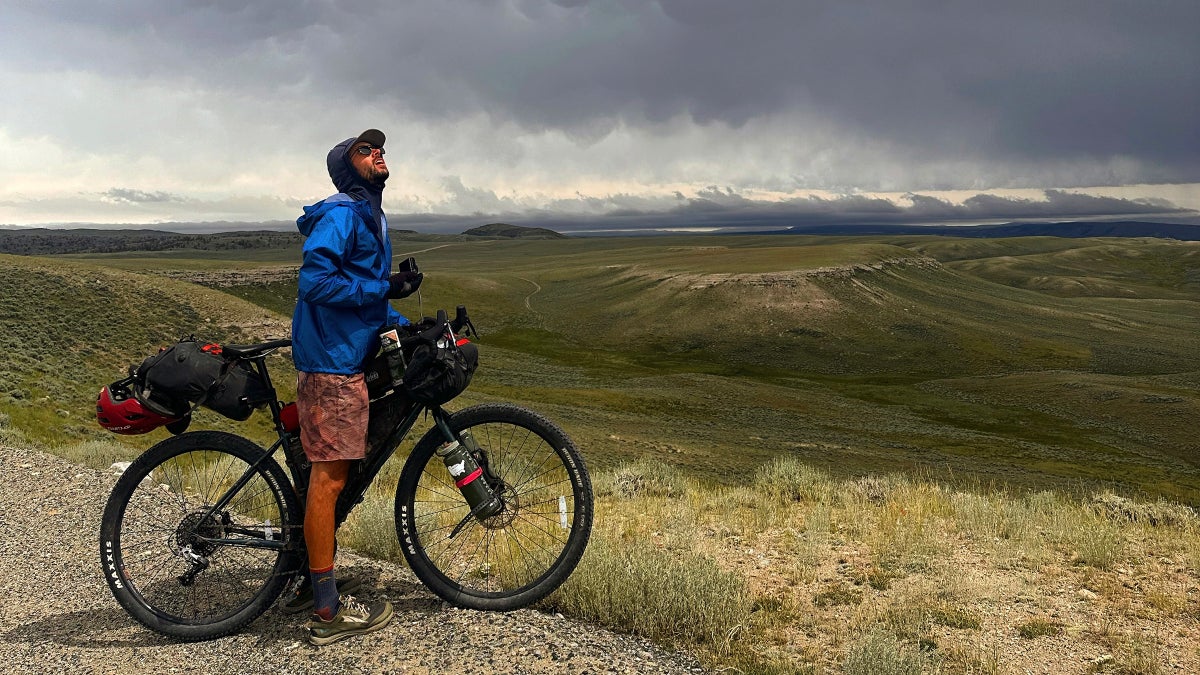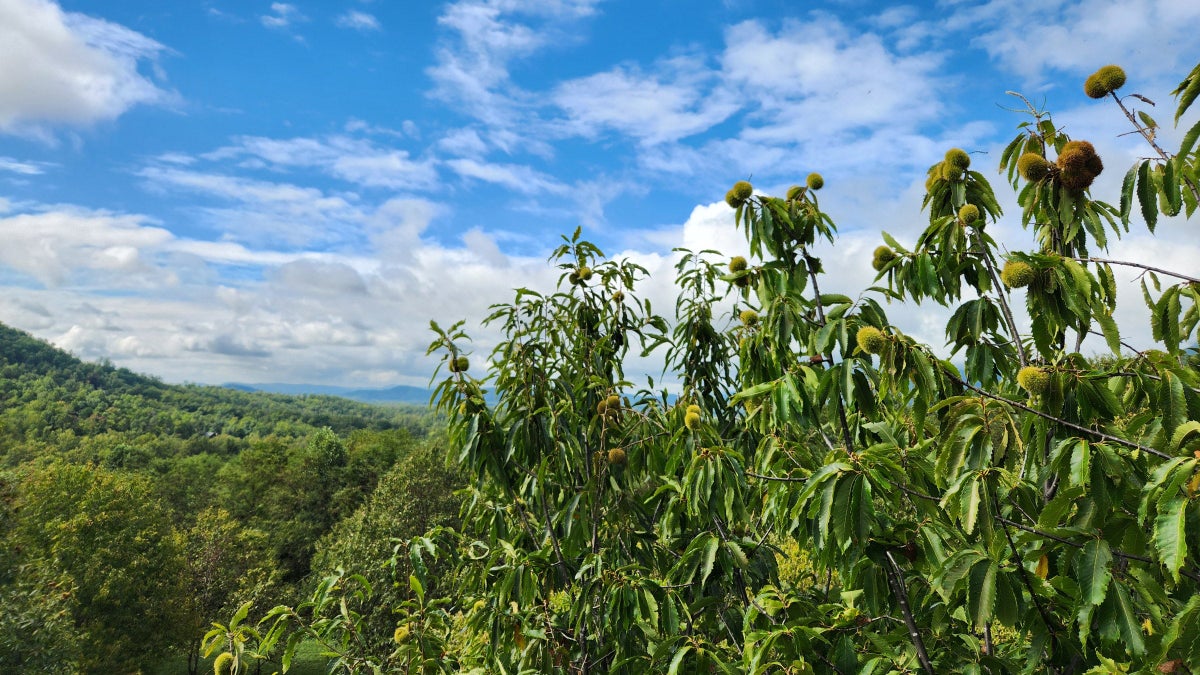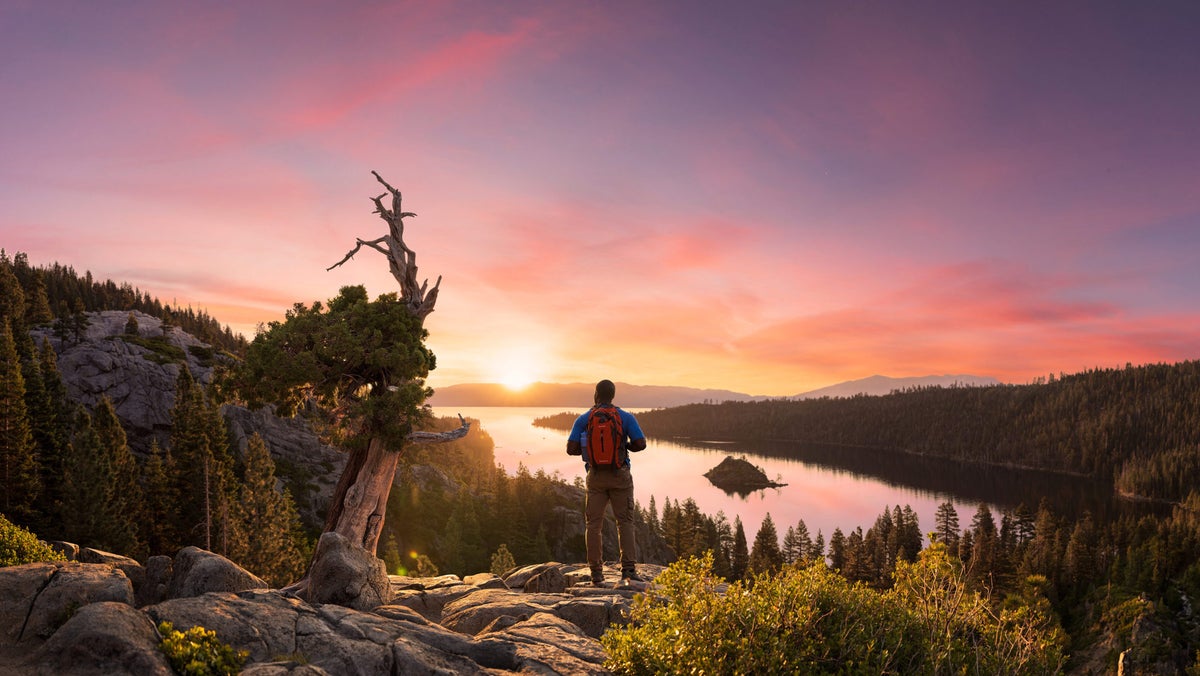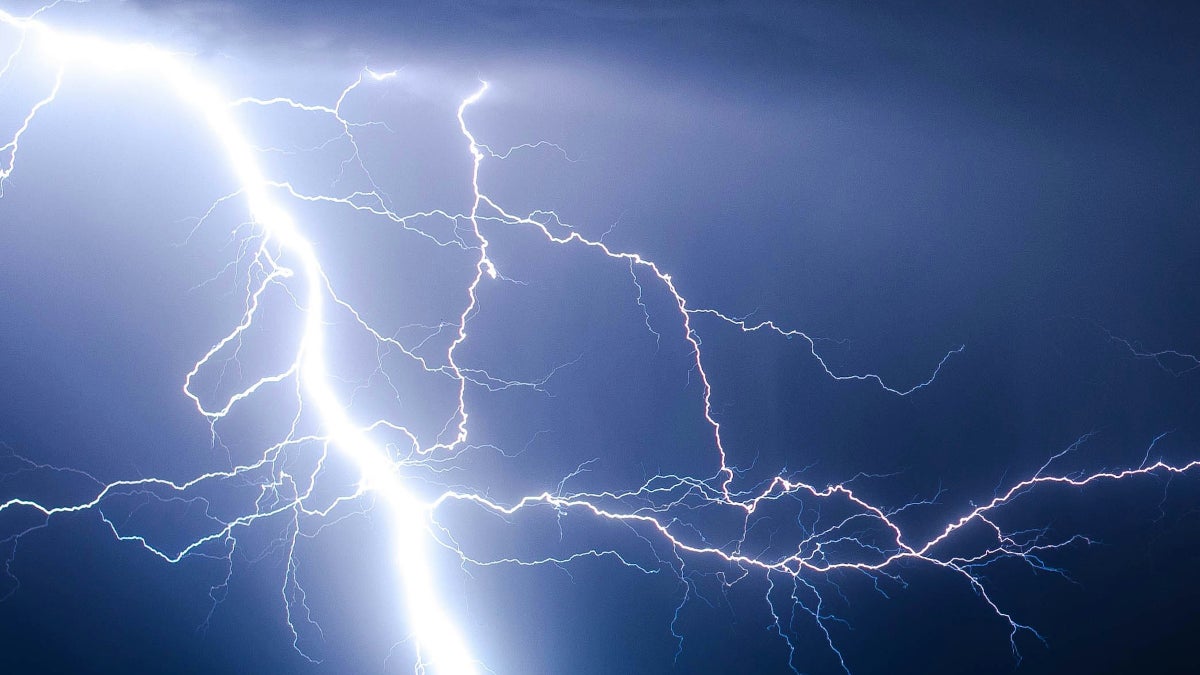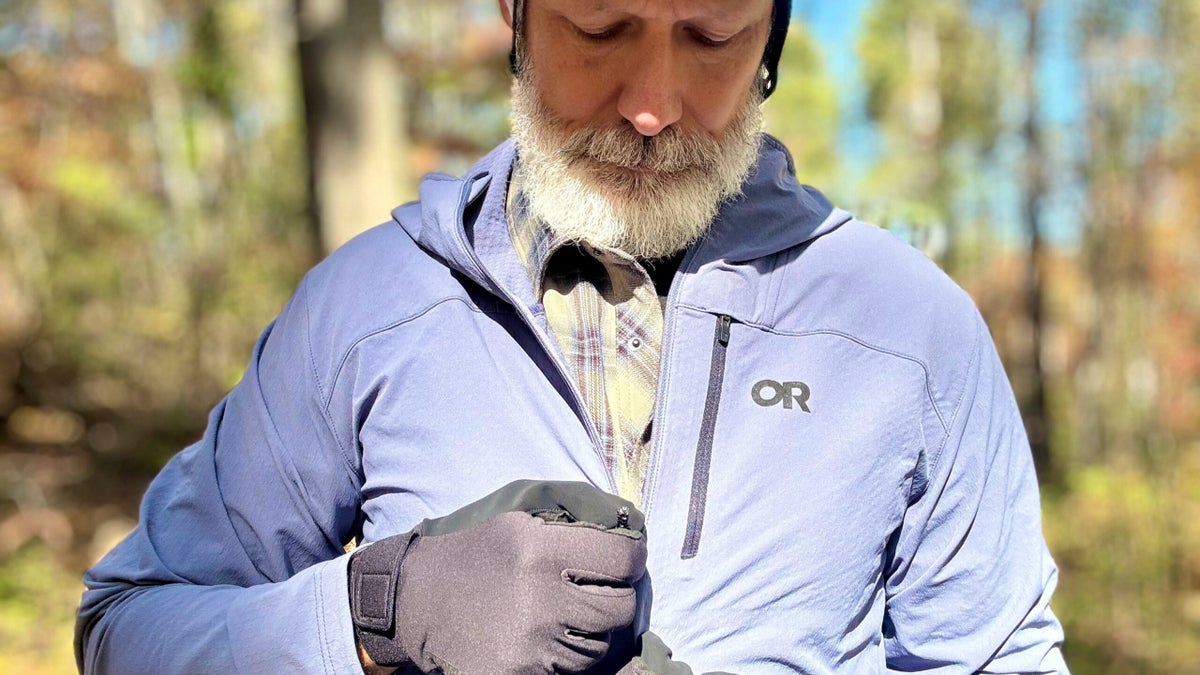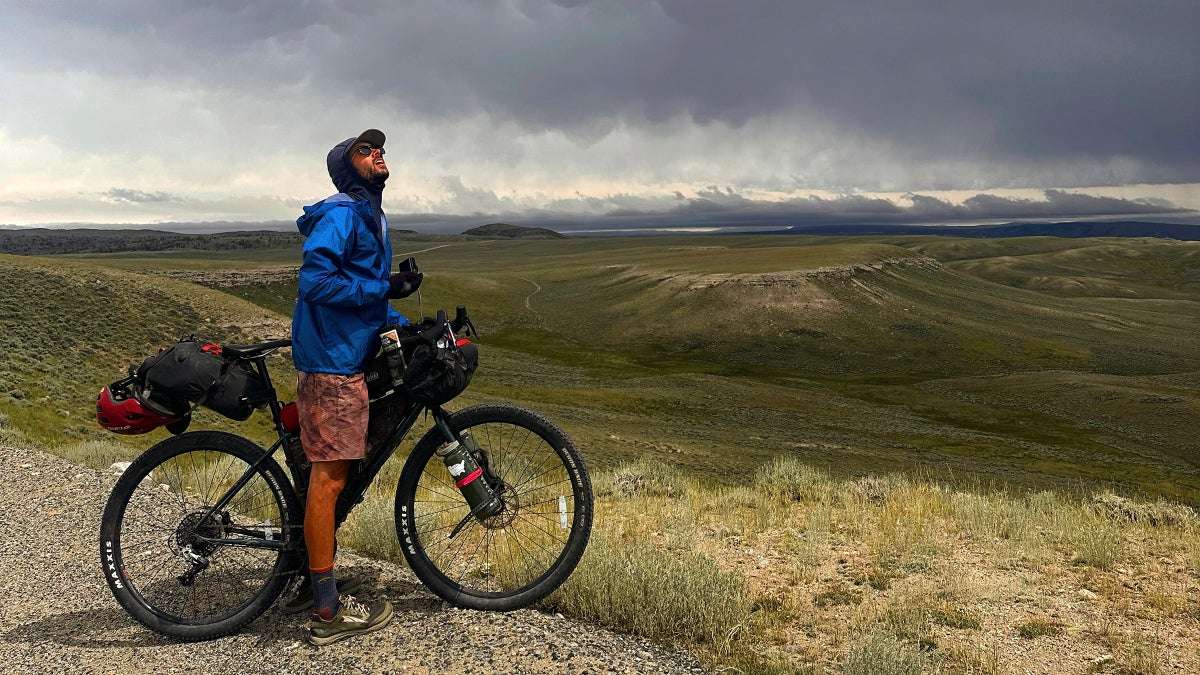
It was past midnight when I woke up to movement. Matt was awake. I could barely make out his shape sitting in the tangle of the sleeping bag.
“Matt,” I whispered. “Matt, what’s wrong?”
He groaned between gritted teeth, something about the sickness coming back.
My heart sank. Maybe he just has to puke one more time. Maybe he needs some electrolytes. Maybe he’ll be fine in the morning.
But as he crawled in and out of the tent, laid down, sat up, grimaced, burped a sickly sweet stench into claustrophobic tent space, the situation solidified. He was very sick, and we were out in the national forest, very far from town.
Four weeks earlier, as Matt and I dragged our cycling gear through the Greyhound terminal in El Paso, Texas, my mind looped through everything that could go wrong in the upcoming 2,700 miles. We were about to start the Great Divide, a biking route that follows the Continental Divide from the U.S.-Mexico border, across five states, and up into Canada.
Despite the endless uncertainties of a long-distance bike trip, one thing I wasn’t concerned about was the remoteness. The Divide shares many of its miles with ATVs, dirt bikes, and campers. Towns dot the map and road crossings are frequent.
Once we began riding, my other fears seemed largely unfounded. We had some bike repairs in New Mexico, ran the gauntlet of snarling dogs on the outskirts of towns, and Matt had to perform minor surgery on his broken seatpost. Nothing that wasn’t easily fixed and nothing too far from a road crossing.
Early Signs of Distress
What didn’t resolve was my exhaustion and discomfort biking 12 hours a day—and how this effort ended up impacting Matt’s body. By the time we’d cycled 1,300 miles to Wyoming’s Great Basin, I weighed the same as when we started, while Matt looked absolutely skeletal.
His weight loss came into focus as we parked our bikes at a diner in Atlantic City, Wyoming. His shoulder blades cut lines under his shirt, his face pulled taut over sharp cheekbones.
I gaped. “You look really skinny. How much weight have you lost?”
“I’m fine,” he said, grabbing his Ziplock travel wallet. “I just need to eat more in town.”
I inhaled my double cheeseburger in five bites, but Matt pushed his plate away.
The 100 miles from Atlantic City to Pinedale, Wyoming was the first time Matt rode behind me. At one point, he fell so far back I thought I’d taken a wrong turn. In town, he faceplanted onto the motel bed and slept for the rest of the day.
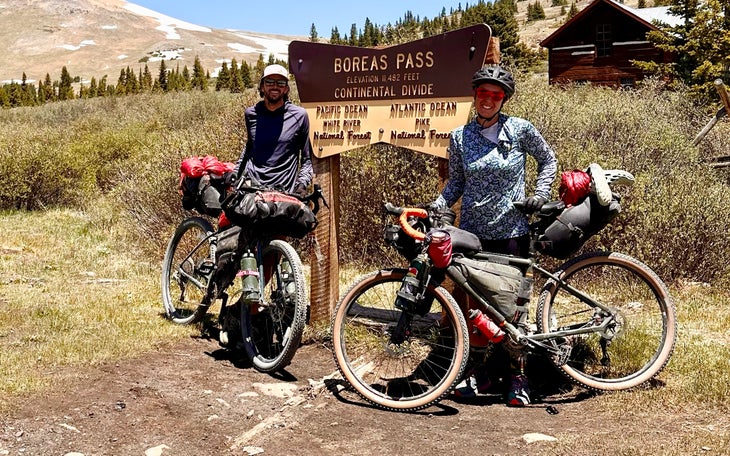
That night, he was so violently ill there was no way we were riding out the next day. He spent all night on the bathroom floor, and in the morning looked even more gaunt. I could see every rib, the hollows above his collarbone, all fat leeched from his body.
We took a full day off to let him recover, but he got up the next morning and started packing his bike bags.
“Are you sure you’re good to leave?” I asked, studiously ignoring my own exploded stuff sacks.
“We need to keep going,” he said. “We’ve taken almost two days off.”
I’m tempted to say the spiral started in this Pinedale motel room, but realistically, it had been going downhill for a while. Matt had been getting sicker for hundreds of miles, and my confidence from my perceived underperformance had eroded to the point where I’d stopped trusting my instincts. It was a frog in boiling water scenario, happening slowly enough that we didn’t notice our poor positioning. If I’d been in a better headspace or felt better on the route, I might have demanded we stay another day or see a doctor. Instead, we rode out of town.
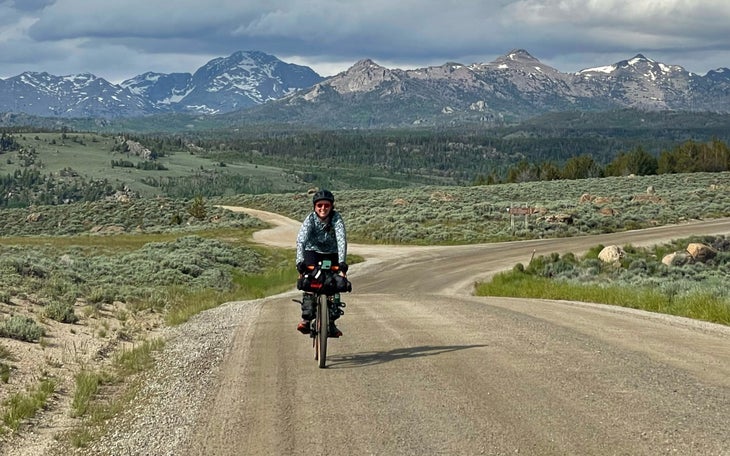
We biked side by side past fields of cows with the Wind River Range rising in the distance. We rode through an RV campground and onto the rutted Union Pass Road, which straddles the Continental Divide. Matt kept up, and I felt cautiously optimistic. We pulled over 50 miles later at Mosquito Lake, deep in Bridger-Teton National Forest. We hadn’t seen anyone in hours and were surprised by the tidy tow-behind parked on the other side of the lake. We waved hello and unloaded our bags.
I read a book while Matt chatted with the tow-behind’s owner near the water. I told myself to calm down, that his illness was a short-but-violent stomach bug. Sometime after dark, I fell asleep.
A Sharp Pain in the Middle of the Night
That night, I awoke to the sounds of Matt groaning and thrashing in his sleeping bag. The hours dragged and he continued to deteriorate to the point of delirium. Any hope that he would feel well enough to bike out faded.
My brain spiraled. I wish we hadn’t left Pinedale. I wish we were in a motel. I wish I weren’t in charge. I wish I didn’t have to figure out what to do. I wish we weren’t here.
Valid wishes, but not helpful. Think about how to get out of here, I told myself.
I snapped the map open, scanning for the next major road crossing. We had no cell service, but had passed a Forest Service cabin the day before (empty), and I saw a paved road ahead (far away). Pinedale was 50 miles behind us, the last populated campground at least 30. We were pretty stuck.
My mind didn’t go to calling search and rescue. Matt was sick, not injured, so I fixated on my thru-hiker instincts of hitchhiking. We just had to get to a road.
I laid out the options: I could bike back to the campground, or wait on the deserted road in hopes of a ride. We could wait out the sickness at Mosquito Lake, or see if the family could give us a ride in their truck.
If Matt had wrecked his bike, broken his collarbone, or been whacked by a car, the decision would be easy. Call for help, get to a hospital. Our situation felt muddier. He was so sick he couldn’t sit up, but still I doubted my instincts. Was I being dramatic? Could I just roll him back down Union Pass Road?
I vibrated with stress for three hours until dawn broke gray over the lake and I crawled out of the tent, peering through the trees. I stumbled through the wet grass into the adjacent campsite, a disheveled ghoul in Crocs and saggy base layers. The camper looked up, mouth agape.
I’d envisioned retaining some dignity, but any semblance of composure vanished and what came out of my mouth was a garbled, pleading explanation between hiccuping sobs.
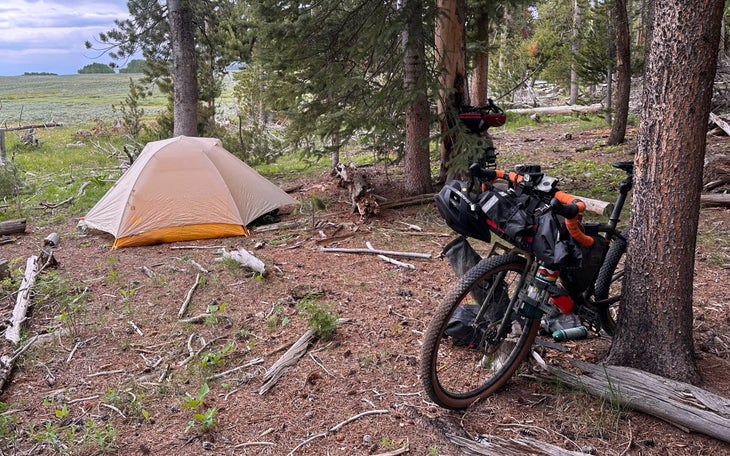
The man, whose name was Mike, looked startled and confused. Then he shook his head.
“I can’t get you out of here… my family is in the camper, the truck is entirely full.”
I sank onto a log and put my face in my hands.
“Hang on one second.” Mike went to his truck and returned with an orange plastic brick. It was the same Garmin inReach Matt and I had decided to leave home the month before. Populated route, lots of road crossings, bulky device, small bike bags. Hindsight is 20/20.
“Let me message my mom,” he said. “She might be able to call the Forest Service to get you a ride.”
I thanked him profusely and hurried back to our tent.
Calling for Rescue in the Middle of Nowhere
Matt nodded at my update, eyes glassy. It was around 6 A.M. I sat down to grind my teeth and wait.
Mike came to our campsite a half hour later. They’d connected with Pinedale, but the Forest Service couldn’t help.
I felt myself crumble.
“We’re going to clear out the truck,” Mike said, “I think we can fit you in there.”
He came back after a few minutes. Pinedale had contacted Teton County Search and Rescue; they were sending a crew from Jackson Hole.
During all those hours, calling search and rescue hadn’t occurred to me. With that clarity came a flash of regret and shame: Even if I’d wanted to call, we didn’t have our own satellite messenger.
The rest of the morning was a waiting game that tested my shattered nerves to the breaking point.
“I don’t think they’re coming,” Matt said weakly at one point. I feigned confidence, but this wasn’t Uber Eats; I couldn’t track their progress.
Finally, around 11 A.M., a faint hum came through the trees, growing louder as I jogged to meet Teton County’s tricked-out, emergency-emblazoned Polaris.
Any doubt that search and rescue was the right call vanished. The rescuers, named Ed and Andrew, listened as I explained the situation. They gave Matt a field evaluation and filed a report with Mike as I helped load our bikes onto the rescue vehicle’s rack.
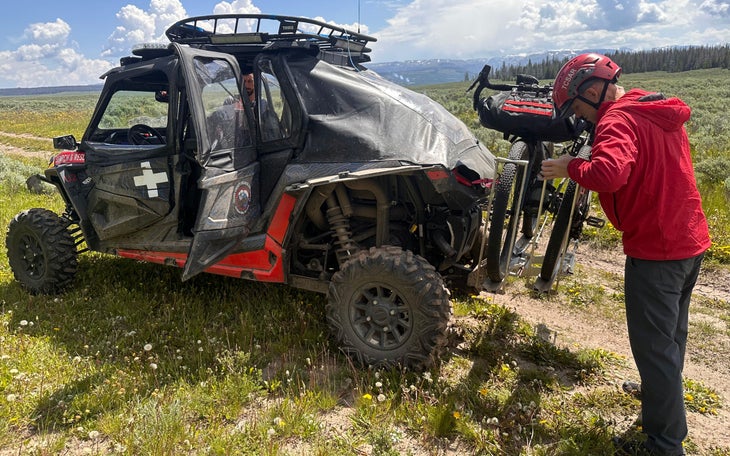
Twenty minutes later, we began the multi-hour extraction to Jackson Hole. I stared at the trees we’d biked past the day before as Matt now lay pale and clammy across the back seat. It’s over, I thought. We’re getting out.
At the hospital, Matt was given IVs, a vague diagnosis of “something wrong with your stomach,” and a $7,000 bill. He’d spend the next four weeks continuing to deteriorate at home before getting additional bloodwork and tests that showed three severe gastrointestinal infections: Giardia, campylobacter, and a viral infection. Along with this impressive triple threat, his body was deep in ketosis, burning any remaining fat stores and resulting in the sickening “keto burps” I’d smelled in the tent by the lake.
Any complex situation like this—especially with traumatic elements—will have lingering effects. Our choice to leave and our lack of inReach made me question my complacency in the backcountry. Our relationship and communication also struggled. He was convinced I’d pressured him to leave Pinedale. I remembered him being impatient, saying we had to keep riding.
All I know is that Matt was severely ill and we needed an extraction. We are forever grateful to Mike and his family, along with Ed, Andrew, and everyone at Teton County Search and Rescue, for their skills, time, and kindness.
You go into the backcountry any number of times—as I have before—nothing happens. Then one day, you head out for a night that will end up completely falling apart. Some events are the ones that test you. We got lucky this time.
The post What It’s Like to Call Search and Rescue on Your Partner appeared first on Outside Online.










